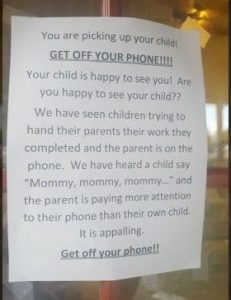In our quest for value, we sometimes take shortcuts to an improved bottom line by buying off-brand equipment at a lower price. In some cases, it’s a shortcut to danger that can leave us walking the edge of a cliff and essentially wipe out any savings we might have gained. It’s taken a concerted effort by a lot of people to pull this one back from the edge of disaster for a new client.
The problem started early in the morning of Martin Luther King Day – and 7 a.m. is early when it’s a holiday. A manager at a new client, called to say the server was “beeping.” Their previous IT firm, which purchased and installed the server, had always told them to reboot the server, and the problem would go away. Two hours later, we got a call that the beep was still there – it was a nuisance – but worse, the company couldn’t do its work.
Phone support didn’t work, so we went to the office, and we wound up spending most of the day – plus all day Thursday and Friday – trying to solve the problem. One of our problems was that the server was not a name-brand, top quality unit. While we are brand-neutral, we believe the top brands for hardware provide the best products with the most up-to-date components, and we consider that an essential in a field where slight variations can have a major effect.
To recap a long story, we spent time on the telephone and on Facetime with the technicians at the server company. We never could get the server running, and by later Monday, our client agreed to ship the server back to the supplier – at a cost of several hundred dollars.
We next turned our attention to their customized application software and that provider. Our client had some issues at the end of 2016 with back-up space on the drive where the application was housed. The software provider claimed it was an IT problem, but during a conference call, we learned they were not providing all the service they were supposed to. They had shut off the backup services about three weeks before all the problems were discovered.
We decided to install new drives, including a “spare” that I had purchased, and began to build up the server, again. We also ordered new drives from the server company. By this time, our client had been down for a few days, and employees were manually processing orders. We worked with the software provider to recover most of the data files. But as we started to rebuild the repaired server, which had new drives, it crashed halfway through the process. By 3 p.m. Friday of that week, we had dealt with a number of issues with several vendors, including Microsoft, and we thought we had the system operational.
By the following Tuesday, we got the new drives. We shut down the system that afternoon to install them and scheduled the data transfer for that night. When it failed, we saw that the drives were the wrong ones. On one level, they met the specifications, but there were a number of internal components that were not correct – and the server provider did not verify all of the specifications involved. As we prepared this article, we had ordered a total of 12 drives – even though only four were needed, and the system still was not working properly.
Compounding the problem, the software provider had a licensing issue, which did not inspire a lot of confidence on our part. The software company had been provided access to browse the file area, but we have decided to block their access. There are too many questions about securing the integrity of the server, and this just shuts off the access until we get everything back and running. The good news is that our client has not lost any data. We appreciate the ability of the software provider to recover all the data, but we continue to have issues with some of the contractors we had to work with.
We continue to have problems with the server and with workstation computers in the company that also are not top-brand products. We also have had problems with a networking card. We are working with the client to replace the workstations, and we are developing a budget for replacements going forward.
The server presents a major problem because it is reaching the end of its warranty period. Even though some of the work on their system has been covered by the warranty, shipping costs and the extra drives were not covered. Also, our client incurred costs related to downtime. We think keeping the server will result in throwing more good money after bad. If they haven’t reached the breaking point already, it’s safe to say they’ve probably wiped out any saving that the lower cost of the hardware may have provided.
Our guiding principle is to buy top-quality hardware and software to meet your expectations of reliability. As your IT consultant, we are equipped to lay out your hardware and software options and to show you their cost-of-ownership options, including the cost of servicing broken-down systems. Call us – 973-433-6676 – or email us to schedule an evaluation of your system and to determine the most cost-effective way improve your operating efficiency and profitability.

